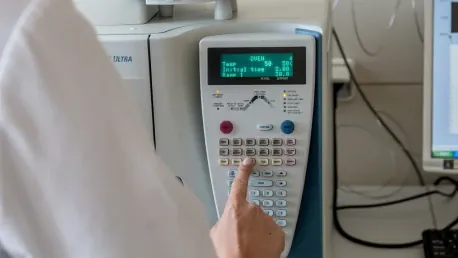Advancements in medical technology have continually shifted the paradigm of diagnostic procedures, particularly within the realm of gastroenterology. Capsule endoscopy, a non-invasive procedure, has emerged as a pivotal tool for examining the small bowel. However, the sheer volume of images generated per examination has posed significant challenges for physicians, leading to considerable workload and increased risks of missed diagnoses due to fatigue. In response to this, researchers have introduced an innovative Artificial Intelligence (AI) model aimed at automating the image review process to enhance diagnostic accuracy and efficiency.
Context
The year 2023 marks a significant leap forward with the development of a convolutional neural network (CNN)-based AI model, specifically MobileNetv3-large. This model has been trained on a diverse dataset comprising images from three leading capsule endoscopy brands: PillCam, EndoCapsule, and OMOM. The essence of this technological breakthrough lies in its potential to alleviate the exhaustive workload faced by endoscopists while ensuring high diagnostic precision.
Detailed Analysis
Massive Image Data Handling
Capsule endoscopy examinations generate tens of thousands of images, traditionally reviewed manually by physicians. This manual review process not only demands extensive time but also poses a high risk of human error due to fatigue. The AI model addresses this challenge by rapidly processing these large datasets, significantly reducing the time required for a comprehensive review.
Advanced AI and CNN Technology
Utilizing the capabilities of convolutional neural networks, the MobileNetv3-large model has been meticulously trained to detect small bowel lesions with remarkable accuracy. The model’s architecture allows it to process images swiftly and with high precision, making it an invaluable tool in gastroenterological diagnostics.
Multi-Brand Data Training
To ensure robustness and generality, the AI model was trained using images from three different CE device brands. This approach not only enhances the model’s performance but also ensures its applicability across various devices, adding to its versatility in real-world clinical settings.
Comprehensive Lesion Recognition
One of the standout features of the AI model is its ability to identify 12 different types of small bowel lesions. This comprehensive lesion detection capability underscores the model’s potential to support thorough and reliable diagnostic processes.
Exceptional Model Performance
In rigorously conducted evaluations, MobileNetv3-large exhibited outstanding performance metrics. Achieving a weighted average sensitivity of 87.17%, specificity of 98.77%, and an area under the curve (AUC) of 0.9897, the model outperformed other existing models, solidifying its place as a front-runner in automated lesion detection.
Human-Machine Comparison
A comparative study revealed that the AI model not only matched but often surpassed experienced endoscopists in diagnostic accuracy and speed. The AI system was capable of processing images approximately 45 times faster than human physicians, marking a substantial improvement in overall diagnostic efficiency.
User-Friendly Clinical Application
To facilitate seamless integration into clinical environments, the AI model was encapsulated in an easy-to-use application built with PyQt5 technology. This application enables non-programmer medical staff to utilize the advanced AI tools without needing extensive technical knowledge, making the technology accessible and practical for everyday use.
Verdict
The MobileNetv3-large AI model and its user-friendly application represent a significant advancement in the field of gastroenterology. By harnessing diverse datasets from multiple capsule endoscopy brands and ensuring transparent AI processes, this technology offers a robust, efficient solution for the automated identification of small bowel lesions. The transition from human-reviewed procedures to AI-automated diagnostics promises to reduce physician workload and enhance diagnostic accuracy. Future efforts should focus on validating this AI system for video evaluations and incorporating it into routine clinical practices, aiming to fully realize its potential in transforming gastrointestinal diagnostics.









